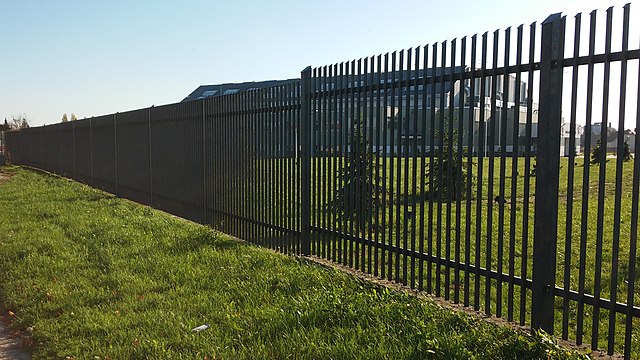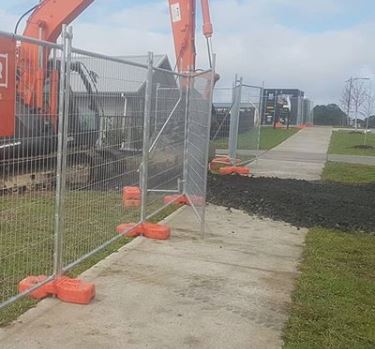When it comes to New Jersey construction sites, erosion control is a critical factor for the successful completion of the project. Erosion can cause significant damage to the soil surface and cost overruns if not properly addressed. One of the most effective solutions for preventing soil erosion on your NJ site is using an erosion control mulch.
These types of mulch materials help trap sediment and moisture while still allowing water to pass through it in order to prevent runoff during heavy rains or floods. It also helps reduce dust, stabilize slopes, and promote plant growth by providing extra nutrients and protection from heat. In this article, we’ll explore some of the benefits that come with using erosion-control mulch on your New Jersey construction site.
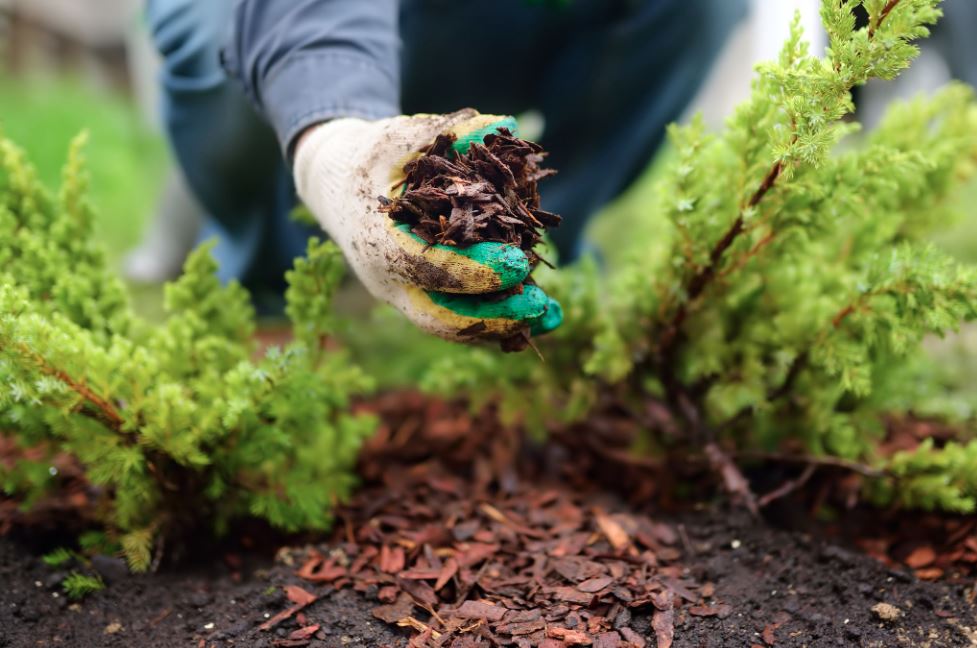
Can Mulch Prevent Soil Erosion?
Yes, mulch can help prevent soil erosion in New Jersey. Mulching is the process of applying a layer of organic or inorganic materials on the surface of the soil. This layer serves various purposes, and one of them is to reduce soil erosion. Here’s how:
Protection from rain impact
When raindrops hit bare soil, they can dislodge soil particles and cause erosion. A layer of mulch acts as a cushion, absorbing the force of raindrops and reducing their impact on the soil.
Reducing water runoff
Mulch helps slow down the flow of water across the soil surface, allowing more water to infiltrate into the ground. This reduces the speed and volume of surface runoff, which can carry away soil particles.
Maintaining soil structure
Organic mulches, such as wood chips, leaves, or compost, can improve soil structure by promoting the growth of beneficial microorganisms and earthworms. These organisms help bind soil particles together, making them less susceptible to erosion.
Preventing wind erosion
A layer of mulch can protect the soil from the drying effects of wind, preventing the soil from becoming too loose and susceptible to wind erosion.
Suppressing weed growth
Weeds can contribute to soil erosion by loosening the soil structure as they grow and die. Mulching helps suppress weed growth, which can, in turn, reduce soil erosion.
Types Of Erosion Control Mulch To Use On New Jersey Construction Sites
Straw Mulch
Straw Mulch is probably the most commonly used erosion control mulch in New Jersey. It’s affordable, easy to find, and easy to apply. Straw mulch is made from cereal straw and is preferred for its quick decomposition because it adds organic matter to the soil.
It’s available in different grades, including fine or chopped straw, which decomposes faster, and baled, which is slower to decompose. Straw mulch is best suited for steep slopes, where it can act as a barrier and reduce the velocity of runoff.
Woodchip Mulch
Wood chips come from trees and shrubs that have been chipped. They make an excellent mulch material to stop soil erosion, especially on steeper slopes. Woodchip mulch is easy to apply and provides excellent soil retention. It’s also great for improving soil structure and retaining moisture.
The woody material is long-lasting compared to other types of mulch which could get in the way of seed and soil contact if you intend to seed an area for grass or turf. This may not be favorable if you wish to cultivate in the seasons to come.
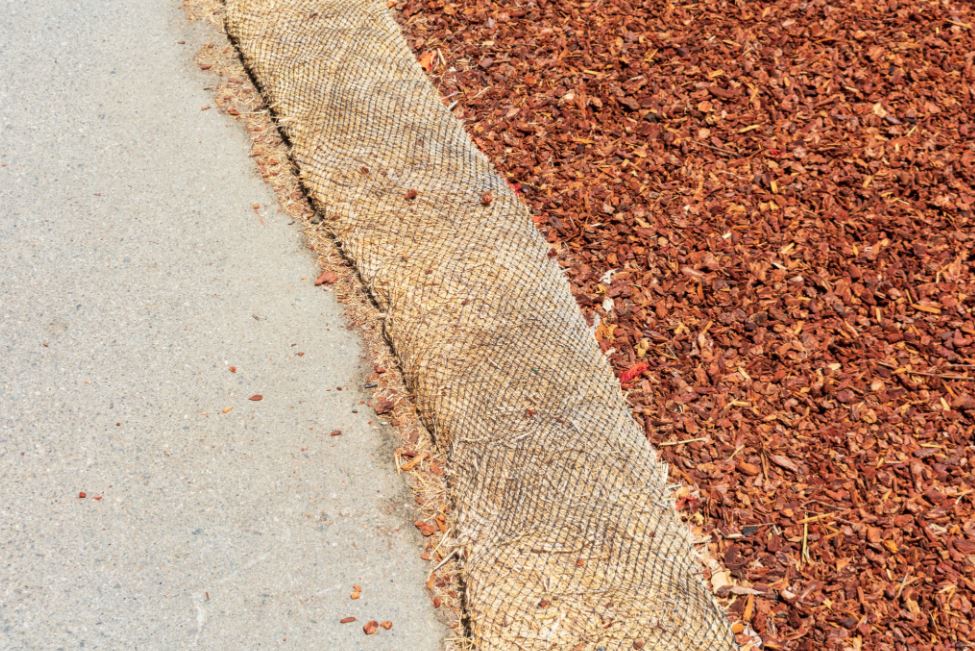
Gravel Mulch
Gravel mulch is another type of erosion control mulch that is preferred for its hardwearing nature. Gravel mulch does not compact quickly, hence is ideal for high traffic areas like walkways and driveways. It stays in place as it is not easily moved by wind and doesn’t float away in rain events. Gravel provides excellent drainage the material is large enough which incorporates air spaces between the gravel pieces that fill and filter water and keeping soil in place.
It’s also suited for sloped areas where other types of mulch cannot stay in place. Gravel mulch is often used as an under-layer beneath other materials such as woodchip and straw mulch.
Bark Mulch
Bark mulch is popular among gardeners because it provides excellent soil coverage and contains many essential nutrients. Bark mulch is available in different shades, making it easy to match with your garden’s aesthetic. It’s also long-lasting, which means you won’t have to reapply it often. Bark mulch is preferred for landscaping applications, especially around trees and shrubs.
Compost
Composting is the act of breaking down waste matter into rich, fertile soil. When compost is applied to bare soil, it acts as a mulch effectively. Compost retains moisture in the soil, suppresses weeds, and adds nutrients to the soil. Compost is best used after planting as it can also act as a top dressing.
Benefits of Erosion Control Mulch
Prevents Soil Erosion
Erosion control mulch helps stabilize the soil by holding it in place and protecting it from water and wind. Rainwater, especially in heavy downpours, can wash away the topsoil, exposing the underlying soil and leaving plants stranded. Mulch creates a barrier that prevents soil erosion and helps to keep the topsoil in place. Moreover, it prevents soil compaction, which is essential in improving soil health and allowing roots to grow freely.
Promotes Plant Growth
Mulch improves soil fertility by adding nutrients to the soil as it decomposes. The added nutrients promote plant growth and help to produce healthier and more robust crops. Furthermore, mulch offers an excellent environment for beneficial organisms such as earthworms that enhance soil health. This healthy environment created by mulch, helps plant growth by preventing diseases and parasites while promoting healthy plant growth.
Reduces Stormwater Runoff
Erosion control mulch is a significant solution that minimizes stormwater runoff and erosion during heavy rains. During these events, stormwater runoff can cause significant damage to the soil structure. Applying a barrier of mulch, it helps to absorb the rainwater and distribute it evenly, rendering it useful in plant growth. In turn, the water is used slowly, and it helps avoid the building up of water required when the rain is decreased.
Cost-Effective and Easy to Apply
Erosion control mulch is an affordable solution compared to other erosion control techniques. Moreover, once the mulch is laid, it requires minimal maintenance as it decomposes naturally, releasing vital nutrients back into the soil. Also, it’s easy to apply, and the process can be done manually or using specialized machinery, regardless of the project’s size.
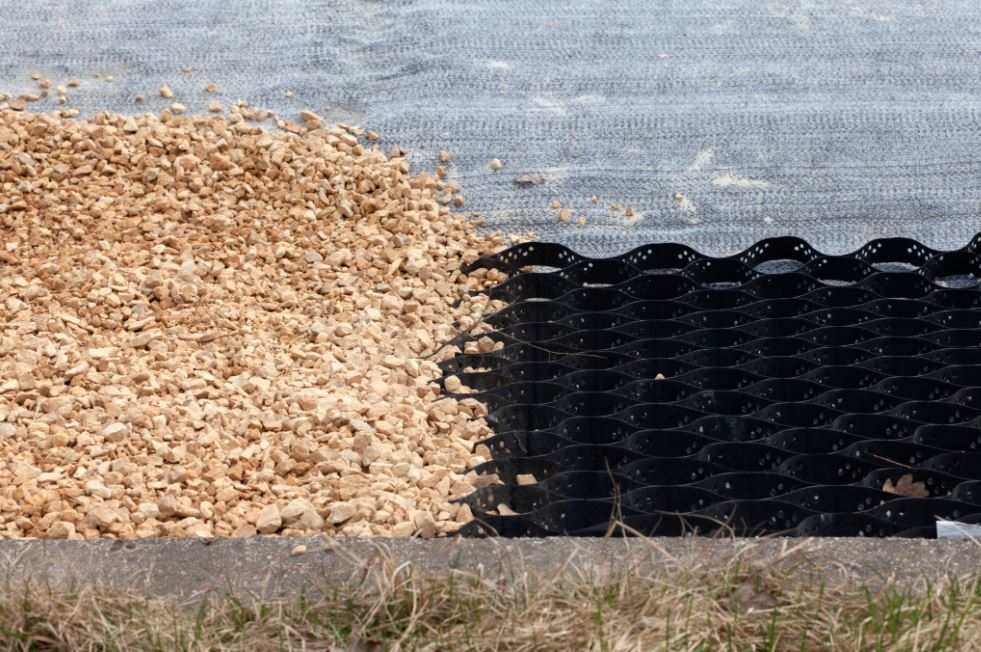
Is Organic Or Inorganic Material Better For Erosion Control
Erosion can be a real problem for anyone trying to maintain healthy soil. Luckily, mulch is a great way to prevent erosion. But which is better – organic or inorganic? This is a question many people have, and the answer is that it depends on your specific needs. Organic mulch can add nutrients to the soil and help improve soil quality over time. However, it can also decompose quickly and may need to be replaced more often.
Inorganic mulch, on the other hand, is longer-lasting and requires less maintenance. Ultimately, the choice between organic and inorganic mulch comes down to your specific situation and goals. Consider factors such as the quality of your soil, the climate in your area, and the amount of maintenance you are able to provide before making a decision.
Applying Erosion Control Mulch
Preparation of the site
When it comes to any construction project, ensuring that the site is properly prepared is crucial for success. This is especially true when it comes to applying erosion control mulch. There are several steps that need to be taken to prepare the site, from removing debris and loose soil to grading the land to ensure proper drainage.
Additionally, the area where the erosion control mulch will be applied needs to be cleared of any plants or vegetation. While this may seem like a daunting task, taking the time to properly prepare the site for erosion control mulch will ultimately save time and money in the long run by preventing erosion and ensuring the stability of the area being worked on.
Application process
Erosion can wreak havoc on any construction site or landscape project. That’s why it’s important to utilize organic mulches for controlling erosion during the application process. Employing this mulch can help prevent soil erosion and sediment build-up by absorbing water and slowing down the runoff. Plus, it can effectively reduce the need for regular watering and promotes plant growth.
The application process is fairly straightforward – simply ensure the area is cleared of rocks or debris, then apply the mulch evenly with a spreader or by hand. As the mulch decomposes, it provides nutrients to the soil, making it a cost-effective and eco-friendly solution for erosion control on any project.
Final Thoughts About The Benefits Of Erosion Control Mulch For Your Construction Site
Erosion control mats and organic materials, such as mulch, can be great tools for preventing soil erosion. When selecting the right type of erosion control material for your project, consider factors like the level of erosion present on your site, the type of soil and plants you have, and cost-effectiveness.
Additionally, make sure to properly prepare your site before applying any kind of mulch or other protective layer to maximize its effectiveness.

